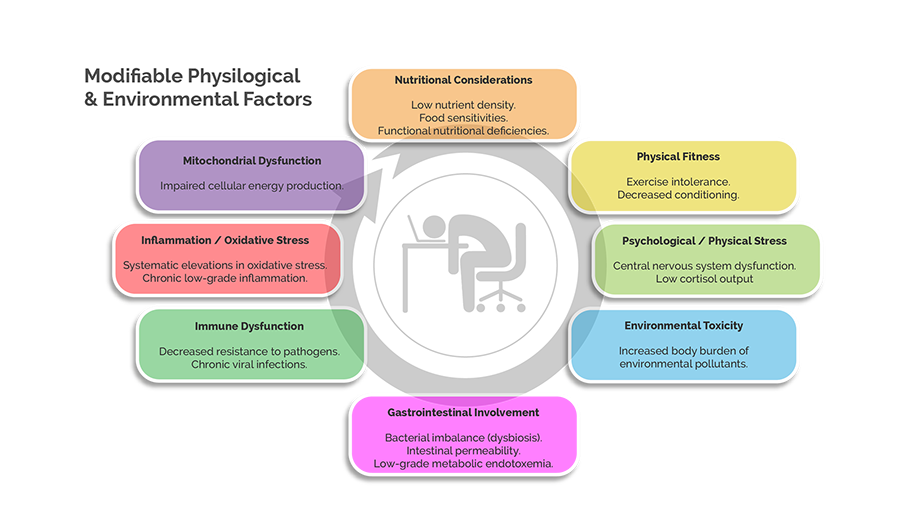Support for Chronic Fatigue Syndrome (CFS)
I notice a pattern in my clinic: often, people come to me with a diagnosis of Chronic Fatigue Syndrome (CFS) but have little or no clue as to how about the process of recovery. This condition is a classic example of where the medical profession has no solution.
Some background
Chronic Fatigue Syndrome (CFS) is estimated to affect from 1.85% - 11.3% of the population, and yet alarmingly, diagnosis (in general) can take five years from the appearance of initial symptoms.
Total recovery rates vary from 0 – 37%, and improvement rates vary considerably from 6 – 63%.
Diagnosis
So far, there has not been an individual recognised cause, however several underlying physiological dysfunctions have been recognised that link specifically in the immune and central nervous system.
Diagnosis firstly looks to exclude differing medical causes of fatigue, with the most commonly accepted criteria being:
A patient reports persistent or relapsing fatigue for a minimum of six consecutive months A differing diagnosis must be excluded, and, the person must present with at least four of the following symptoms present for greater than six months:
- Sore throat
- Tender lymph nodes (axillary: armpit, or cervical: neck)
- Impaired memory or concentration
- Unrefreshing sleep
- Muscle pain
- Multiple joint pains (without redness or swelling)
- Post-exertion malaise
- Headache (that has persisted or reoccurred during at least six consecutive months but has not predated the fatigue).
Symptoms of Chronic Fatigue Syndrome
Common symptoms experienced with CFS include:
- Extreme fatigue with or without exertion
- Sleep disruptions (e.g. insomnia)
- Muscle and/or joint pain
- Headaches
- Sore throat and/or sore glands in the neck and/or armpit
- Memory and/or concentration problems
- Brain fog or fuzzy head
- Dizziness/Balance issues
- Nausea
- Heart palpitations
- Flu like symptoms: chills/fever
- Mood swings
- Irritability
- Depression
- Feeling weak/faint
- Digestive symptoms/IBS
It’s worth noting that in addition, children who suffer with CFS may also present with:
- Tension headaches
- Abdominal pain
- Hyperactivity
- Sadness
- Tachycardia
- Orthostatic hypertension
Sadly, in children, CFS can be confused with laziness.
Health Conditions
Turning things round
The good news is that there is much that can be done to improve the situation by correcting nutritional imbalances to restore overall health.
If you have a diagnosis and are looking for support for Fibromyalgia or Chronic Fatigue, then please get in touch to discuss the options. Alternatively, click here to view my range of packages.

Further reading and helpful resources
NHS UK – https://www.nhs.uk/conditions/chronic-fatigue-syndrome-cfs/
Action for ME – https://www.actionforme.org.uk/what-is-me/introduction/
ME Association – https://www.meassociation.org.uk/
Health Harvard – https://www.health.harvard.edu/a_to_z/chronic-fatigue-syndrome-a-to-z
Centers for Disease Control and Prevention – https://www.cdc.gov/me-cfs/me-cfs-children/children-symptoms-diagnosis.html
Leading specialists:
Dr Sarah Myhill is a Leading Doctor Specialising in CFS, and her website is a complete library of information – https://www.drmyhill.co.uk
Dr Mark Hyman – leading Functional Medicine Doctor – discusses CFS and his recovery from the disease – https://www.youtube.com/watch?v=DOwBA5QIXS8





